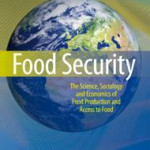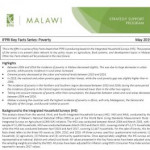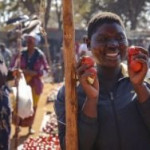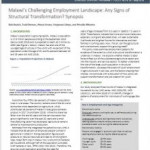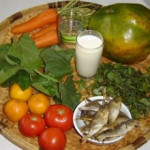The importance of forests in supporting the well-being of poor rural communities in developing countries cannot be overstated, not only for improving food security but also for biodiversity conservation. A study recently published in Food Security journal examined whether there is a relationship between forest cover and diet quality at the household level in rural >> Read more Source: Malawi Strategy Support Program
Key Facts Sheet: Poverty
IFPRI Malawi is pleased to announce the publication of a fifth Key Facts Sheet highlighting recent trends in poverty in Malawi. This follows Key Facts sheets on agriculture, food and nutrition security, social safety nets, and inequality. The series is being produced using the Integrated Household Surveys (IHS). The series synthesizes nationally representative household survey >> Read more Source: Malawi Strategy Support Program
Evidence from Malawi: Why agricultural and nutrition education programs should engage both women and men in households
This blog is crossposted from the IFPRI website and was written by Catherine Ragasa and Noora-Lisa Aberman. Gender norms and inequalities are an important factor in Malawi’s ongoing food security problems. They shape agricultural practices and production, knowledge acquisition, innovation, food choices—and ultimately household food security and nutrition. Women have generally lower levels of education and lack >> Read more Source: Malawi Strategy Support Program
Policy Note 34: Malawi’s Challenging Employment Landscape: Any Signs of Structural Transformation? Synopsis
This Policy Note offers a synopsis of a study, detailed in Working Paper 27, which examined Malawi’s employment landscape, focusing on the challenges facing its rapidly growing youth. Using three rounds of the Integrated Household Survey (IHS) conducted between 2004 and 2016, the study finds little evidence of structural transformation in Malawi’s economy or of >> Read more Source: Malawi Strategy Support Program
The Nutrition Landscape in Malawi: Past, Present, and Future
This blog is based on a presentation by Zione Kalumikiza made to kick off the Civil Society Organisation Nutrition Alliance (CSONA) Debate on Nutrition. This event was organized in conjunction with Save the Children International for the four main political parties contesting in the forthcoming tripartite election. The event was supported by the Graça Machel >> Read more Source: Malawi Strategy Support Program
- « Previous Page
- 1
- …
- 49
- 50
- 51
- 52
- 53
- …
- 55
- Next Page »
